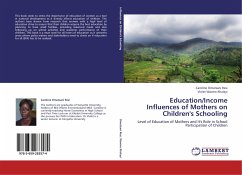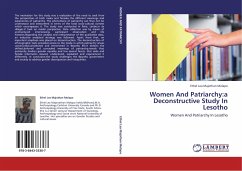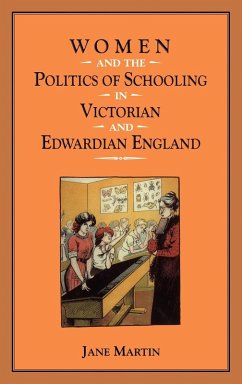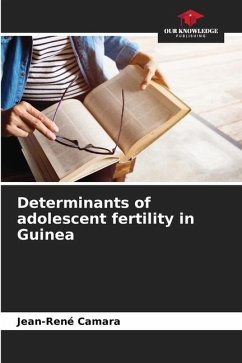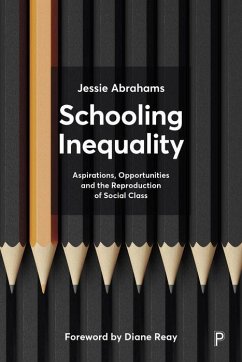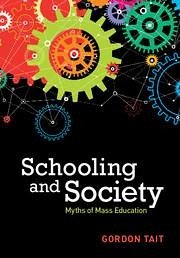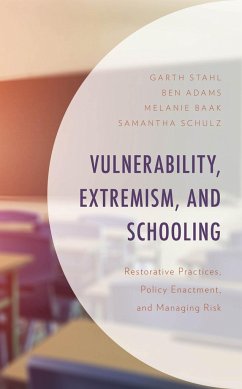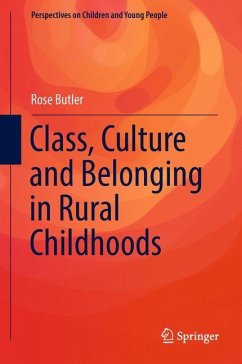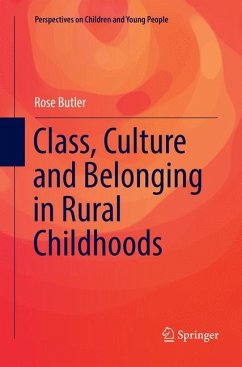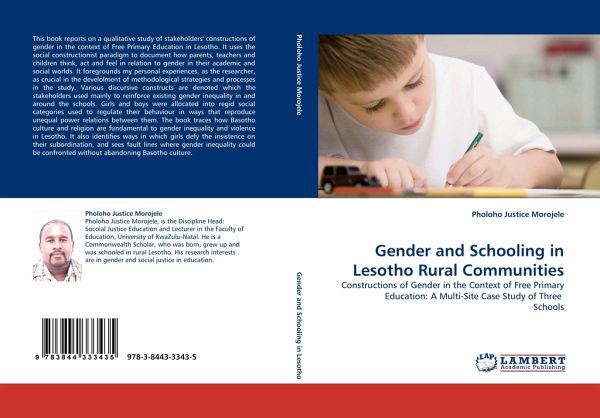
Gender and Schooling in Lesotho Rural Communities
Constructions of Gender in the Context of Free Primary Education: A Multi-Site Case Study of Three Schools
Versandkostenfrei!
Versandfertig in 1-2 Wochen
52,99 €
inkl. MwSt.

PAYBACK Punkte
26 °P sammeln!
This book reports on a qualitative study of stakeholders' constructions of gender in the context of Free Primary Education in Lesotho. It uses the social constructionist paradigm to document how parents, teachers and children think, act and feel in relation to gender in their academic and social worlds. It foregrounds my personal experiences, as the researcher, as crucial in the develolment of methodological strategies and processes in the study. Various discursive constructs are denoted which the stakeholders used mainly to reinforce existing gender inequality in and around the schools. Girls...
This book reports on a qualitative study of stakeholders' constructions of gender in the context of Free Primary Education in Lesotho. It uses the social constructionist paradigm to document how parents, teachers and children think, act and feel in relation to gender in their academic and social worlds. It foregrounds my personal experiences, as the researcher, as crucial in the develolment of methodological strategies and processes in the study. Various discursive constructs are denoted which the stakeholders used mainly to reinforce existing gender inequality in and around the schools. Girls and boys were allocated into regid social categories used to regulate their behaviour in ways that reproduce unequal power relations between them. The book traces how Basotho culture and religion are fundamental to gender inequality and violence in Lesotho. It also identifies ways in which girls defy the insistence on their subordination, and sees fault lines where gender inequality could be confronted without abandoning Basotho culture.



